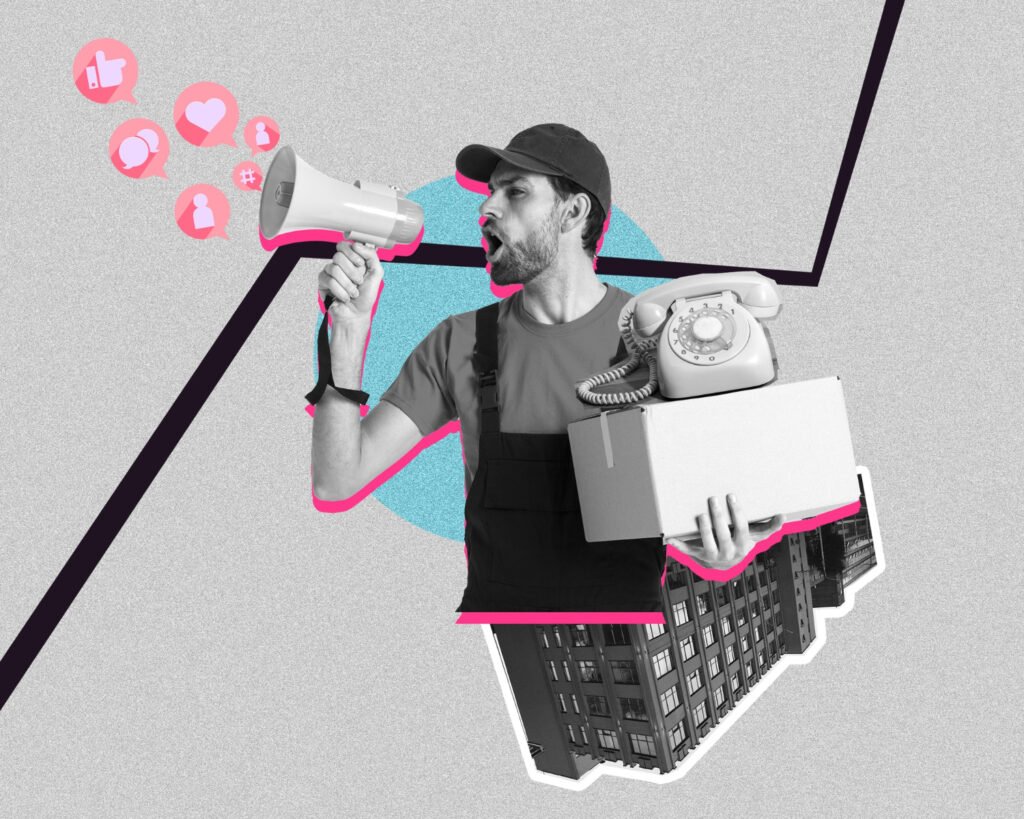In today’s fast-paced digital world, businesses constantly seek ways to enhance their brand visibility and attract potential customers. Organic and inorganic marketing are two distinct strategies that can help businesses achieve this goal. But which one works best for your business? In this blog, we will explore the key differences, advantages, and challenges of organic and inorganic marketing, along with real-world organic marketing examples and various types of organic marketing that can drive long-term success.
Understanding Organic and Inorganic Marketing
Before diving into the specifics, it is essential to understand the fundamental differences between organic and inorganic marketing.
What is Organic Marketing?
Organic marketing refers to strategies that drive traffic naturally over time without direct monetary investment. It relies on content marketing, SEO, social media engagement, and word-of-mouth to attract and retain customers. Examples of organic marketing include blog posts, video content, and social media interactions that gain traction without paid promotions.
What is Inorganic Marketing?
In contrast, inorganic marketing involves paid advertising, sponsored content, influencer partnerships, and pay-per-click (PPC) campaigns to generate quick results. This strategy is ideal for businesses looking to boost their reach and drive immediate conversions.
Key Differences Between Organic and Inorganic Marketing
| Feature | Organic Marketing | Inorganic Marketing |
| Cost | Low-cost (time-intensive) | High-cost (immediate results) |
| Speed of Results | Slow, long-term growth | Fast, immediate impact |
| Sustainability | Sustainable over time | Short-term gains |
| Trust Factor | High trust and credibility | May seem intrusive |
| Audience Engagement | Builds long-term relationships | Focuses on quick conversions |
The Benefits of Organic Marketing
- Cost-Effective Growth
Since organic marketing focuses on unpaid strategies, it is a cost-effective way to build brand awareness over time. Businesses that invest in SEO and content marketing see long-term traffic gains without additional ad spend.
- Higher Engagement and Trust
Users tend to trust organic content more than paid advertisements. Organic marketing examples like user-generated content, social media discussions, and blog posts help establish credibility.
- Long-Term Visibility
Unlike inorganic marketing, which stops generating results once the ad budget runs out, organic marketing continues to attract audiences through high-quality content and SEO strategies.
The Challenges of Organic Marketing
- Time-Intensive: It takes months or even years to build a strong presence through organic strategies.
- Requires Consistency: Frequent updates, content creation, and audience engagement are necessary.
- Algorithm Dependence: Search engine and social media algorithms frequently change, impacting visibility.
The Benefits of Inorganic Marketing
- Immediate Results
With paid advertising, businesses can see quick traffic spikes and conversions, making it ideal for product launches and promotions.
- Precise Targeting
Platforms like Google Ads and Facebook Ads allow advertisers to target specific demographics, locations, and interests, ensuring their message reaches the right audience.
- Scalability
Paid campaigns can be adjusted in real-time to increase or decrease ad spend based on performance, making them highly scalable.
The Challenges of Inorganic Marketing
- High Costs: Paid ads require continuous investment.
- Lower Trust Levels: Consumers may ignore or distrust promotional content.
- Short-Lived Impact: Once the budget runs out, the traffic stops.
The Best Types of Organic Marketing for Sustainable Growth
- Search Engine Optimization (SEO)
SEO is one of the most powerful types of organic marketing that helps businesses rank higher on search engine results pages (SERPs). By optimizing website content, businesses can attract organic traffic consistently.
- Content Marketing
High-quality blog posts, videos, and infographics help engage audiences naturally. A great organic marketing example is how brands like HubSpot use content to educate their audience and drive inbound leads.
- Social Media Engagement
Growing a brand’s presence through consistent social media interactions, community building, and storytelling is a proven organic marketing example.
- Email Marketing
While often overlooked, email marketing is an effective type of organic marketing that nurtures relationships with existing customers without relying on paid promotions.
- Word-of-Mouth & Referral Marketing
Encouraging customers to share their positive experiences organically helps build brand loyalty and trust.
When to Use Organic vs. Inorganic Marketing
Choosing between organic and inorganic marketing depends on your business goals, budget, and time frame. Here are some scenarios where each strategy is ideal:
When to Use Organic Marketing:
- When building long-term brand credibility.
- When you want to reduce marketing costs.
- When focusing on engagement and community building.
When to Use Inorganic Marketing:
- When launching a new product and needing quick visibility.
- When targeting a specific audience segment.
- When running time-sensitive promotions.
The Perfect Balance: Combining Organic and Inorganic Marketing
To maximize marketing success, businesses should combine both organic and inorganic marketing strategies. For example:
- Use inorganic marketing (PPC ads) to drive traffic to high-quality blog content (organic marketing).
- Leverage organic social media growth while running paid promotions for specific campaigns.
- Use SEO-driven blog posts to attract organic traffic while using retargeting ads to convert visitors into customers.
Final Thoughts
There is no one-size-fits-all answer to whether organic or inorganic marketing is better. The right strategy depends on your business objectives, budget, and marketing timeline. While organic marketing ensures long-term sustainability and trust, inorganic marketing provides quick results and targeted reach. By leveraging the best of both worlds, businesses can achieve sustained growth and maximize their ROI.
Would you like to explore more types of organic marketing that can boost your business? Stay tuned for more insights on building a winning digital marketing strategy!






